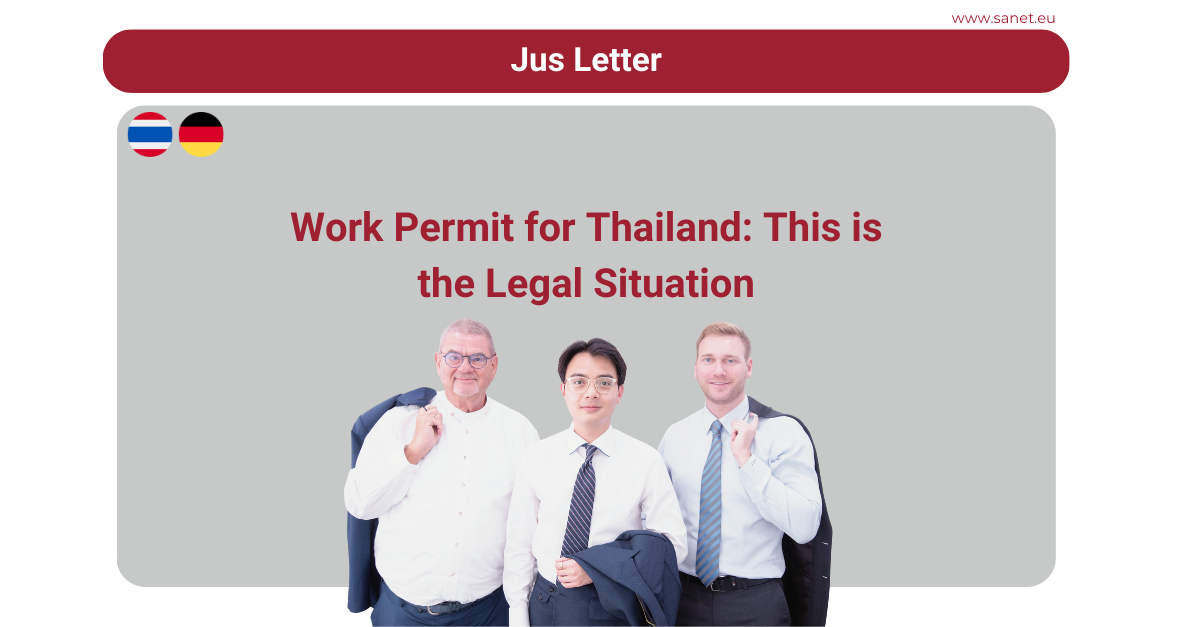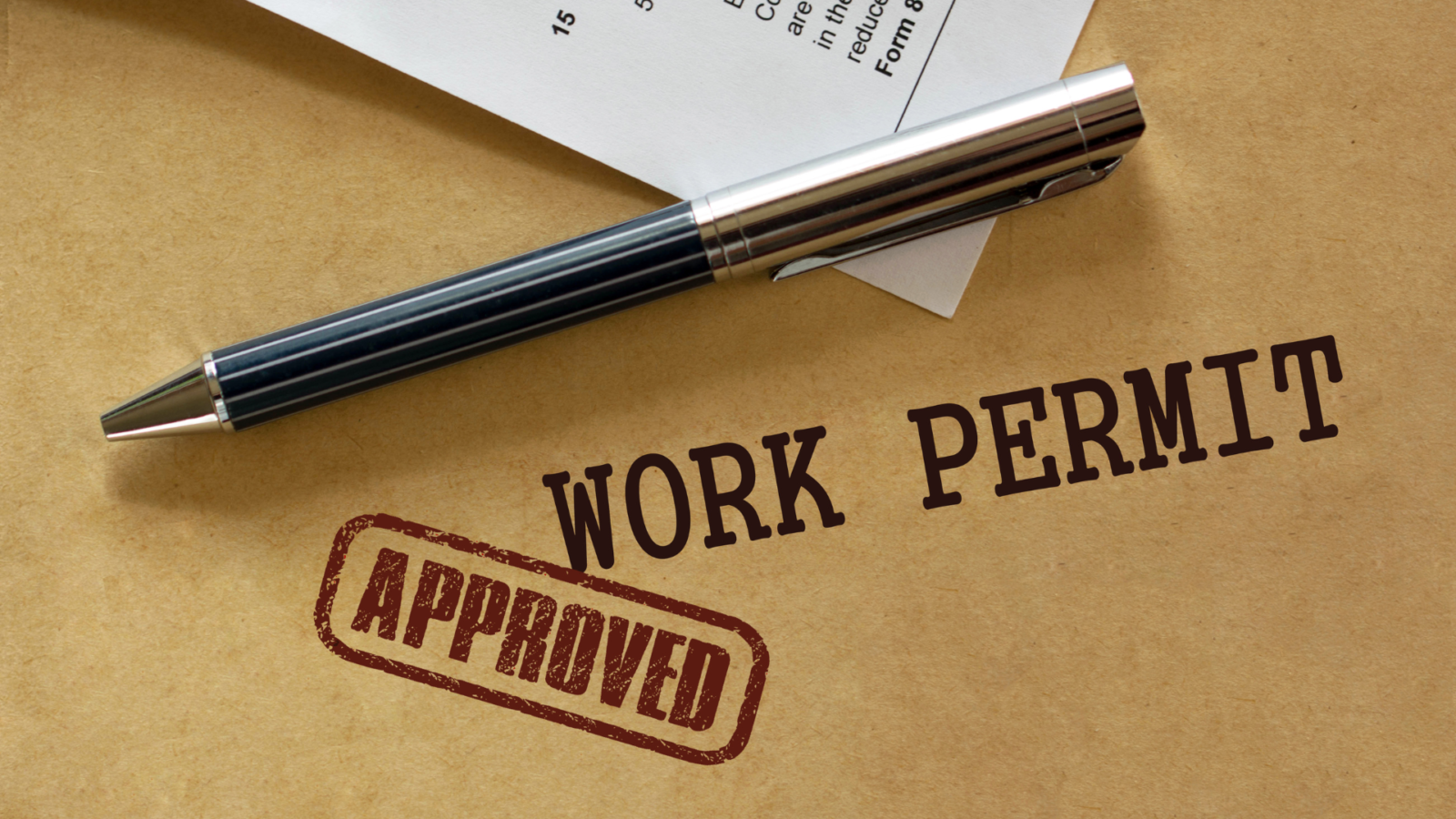Work Permit for Thailand: This is the Legal Situation
“If you sweat you work” Based on this satirically exaggerated principle, the Thai legislature requires a work permit for any activity that requires mental or physical exertion, regardless of whether it is paid or not.
Misleading or simply false information on the internet about new visa types such as the ‘Work-From-Thailand-Visa’, or “remote work” for foreign employers has led to confusion regarding the unchanged need for a work permit for Thailand.
Short term activities and business meetings
In general, a work permit is required for Thailand, regardless of whether the work is paid or not. The determining factor is whether you are performing a task that requires mental or physical exertion. This also applies to short-term tasks.
As this definition can sometimes miss the mark, Thai lawmakers introduced an exception in 2018. It applies to organizing or participating in a meeting or conference.
This also includes giving a lecture or presentation as part of a meeting, workshop, training course or seminar. This eases the exploration of the market, the initiation of business and the supervision of the Thai subsidiary for foreign investors.
The pursuit of artistic and cultural activities or participation in sporting competitions also do not require a work permit. In the case of urgently required work, such as the installation or repair of machinery, foreign skilled workers can apply for an “Urgent Work Permit”. Within one working day, the applicant can receive a work permit for 15 days, which can be extended (at most) once by 15 days. After completing the work, the applicant must leave the country immediately.
Remote work in Thailand
Legally, there is no difference between “working in Thailand” and “working from Thailand” with regard to work permits. “Digital nomads” and “remote workers” who work for foreign companies and wish to work from Thailand therefore also require a work permit.
“Influencers” and “travel bloggers” also belong to this group. Although the authorities do not give top priority to prosecuting them, they will always take action if a complaint or report is made. This unauthorized activity then risks the immediate deportation of ” unwelcome guests”.
Just recently, at the end of 2023, a Chinese influencer posted a negative video about Bangkok’s nightlife and was expelled from the country for not having a work permit. Getting rid of a friend or acquaintance who has become disagreeable through such a complaint can quickly become an easily enforceable method, even in a private dispute.
For vacationers who only use their company PC for a few days during their stay in Thailand, it is unlikely that any problems will arise in practice. The exact period of time after which a work permit is required is not clearly regulated, but from public statements by the Labor Department it can be concluded that this could nevertheless be the case after just a few weeks of “working on vacation”. In any case, vacation is not suitable as an argument for abuse, especially since the simple residence permit in the passport is limited to 30 days.
The Privilege Entry Visa (formerly “Elite Visa”) does not authorize you to work:
As Sanet recently reported, even authorized sellers of the Privilege Entry Visa (formerly Elite Visa) promise that holders of this purchased visa are allowed to work for foreign companies from Thailand. Such fake news have already been strongly contradicted by the relevant authorities. Therefore, particular caution is required with information from the internet and “unofficial concessions”.
It can thus generally be assumed that the Privilege Entry Visa does not entitle the holder to pursue employment, but rather represents a “premium tourist visa” for foreigners without work ambitions.
Exception: The 10 year LTR Visa
The Long-Term-Resident-Visa (LTR) in the ‘Work-from-Thailand’ category is a notable exception. It allows digital nomads to work legally in Thailand, along with a variety of other benefits. The work permit is already covered by this visa, meaning that it is no longer necessary to apply for a work permit.
Therefore, this visa is currently the only way to work for a foreign employer in Thailand. However, the requirements for obtaining such a visa are extremely high. A German lawyer from Sanet Legal in Thailand can provide expert advice on this.
Heavy penalties for non-compliance
Anyone who works in Thailand without a work permit must expect a fine of THB 5,000 – 50,000 and also a two-year ban on obtaining a work permit. They may also face deportation from the Kingdom.
The unlawful posting of foreign personnel to Thailand can also lead to penalties under the Foreign Business Act as well as tax consequences if the employee is considered a permanent establishment for tax purposes.
Summary and Outlook
Given the growing interest in remote working from Thailand for foreign companies, it would certainly be desirable for the Thai authorities to make it easier for this group. This would legalize the illegal work of thousands of online workers already suspected by the authorities and establish Thailand as an attractive destination for digital nomads. The LTR visa is a first step.
However, we must be understanding of the country’s need to protect its own tax interests in any case. Therefore, there will have to be a compromise.
Overall, it is clear that working in Thailand not only offers the comfort of tropical temperatures but is also accompanied by a strict legal framework.
The current regulations may cause uncertainty, but with a clear understanding of the rules, the lawyers at Sanet Legal can also support you in your business venture in Thailand!


